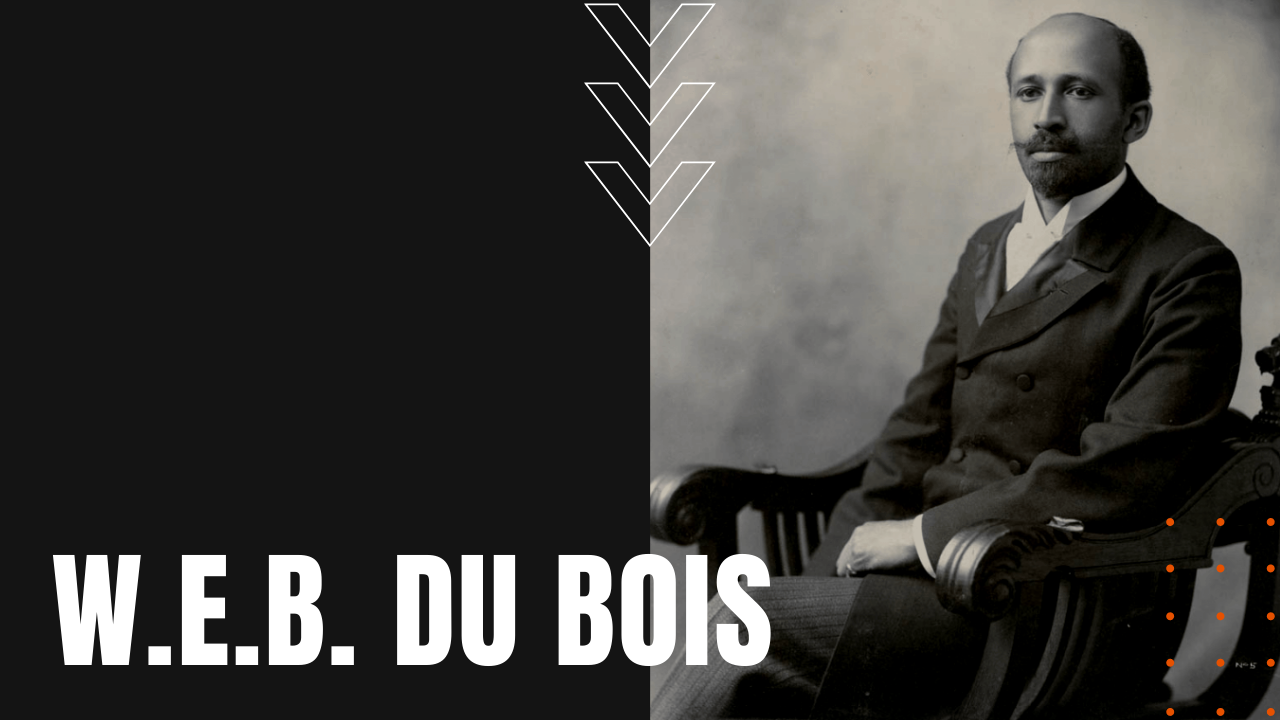W.E.B. Du Bois

Born in 1868 Massachusetts, William Edward Burghardt Du Bois was educated at Fisk University in Nashville, Harvard University and the University of Berlin, leading to his doctoral thesis and first published book entitled The Suppression of the African Slave Trade to the United States of America, 1638–1870, which soon became the go-to book in American higher education on the topic of slavery.
W.E.B. Du Bois Essays
After taking a position at the University of Pennsylvania in 1896, Du Bois conducted a study on Philadelphia’s Seventh Ward, which was published as The Philadelphia Negro in 1899, and remains the first data-driven work in sociology that concluded that the Black community’s primary obstacles lay in poverty, crime, lack of education and distrust of non-Black outsiders.
Du Bois also wrote The Strivings of the Negro People for the Atlantic Monthly Magazine, which to this day remains a seminal essay regarding how it feels to be a victim of racism. In tandem with his work at the University of Pennsylvania, Du Bois also worked for the U.S. Bureau of Labor Statistics, producing five studies on how the lingering effects of slavery continued to impact the personal lives and psychology of African Americans.
The Souls of Black Folk
After accepting a position at Atlanta University, Du Bois published a collection of sociology essays entitled The Souls of Black Folk, which examined the Black experience in America, concluding that a “double consciousness” existed in African Americans regarding their thinking and world view in a racially-charged society.
Included in the book was an essay about the death of his two-year-old son after the toddler contracted and died from diphtheria, due primarily to the glaring truth that no white doctors in Atlanta would step up to save the child’s life.
Booker T. Washington vs W.E.B. Du Bois
After bucking ideological heads with Booker T. Washington while teaching summer school at Tuskegee University, in 1903, Du Bois joined the Niagara Movement—a left-leaning Black rights group that ultimately failed due to Washington’s staunchly conservative opposition.
In 1910, Du Bois moved to New York City to head the newly-formed National Association for the Advancement of Colored People—known in short as the NAACP—where he edited the wildly popular monthly magazine The Crisis, as well as writing his first novel, The Quest of the Silver Fleece.
The Communist Party
After his ever-deepening, left-wing views led Du Bois to endorse communism—including his apologetic view of Joseph Stalin—Du Bois was released from the NAACP in 1948, eventually joining the American Communist Party in 1961 before moving to Ghana at the invitation of the Ghanaian president.
After his death on August 27th, 1963, Du Bois was given a state funeral in Ghana, forever silencing an early voice in America’s slow embrace of racial equality.
